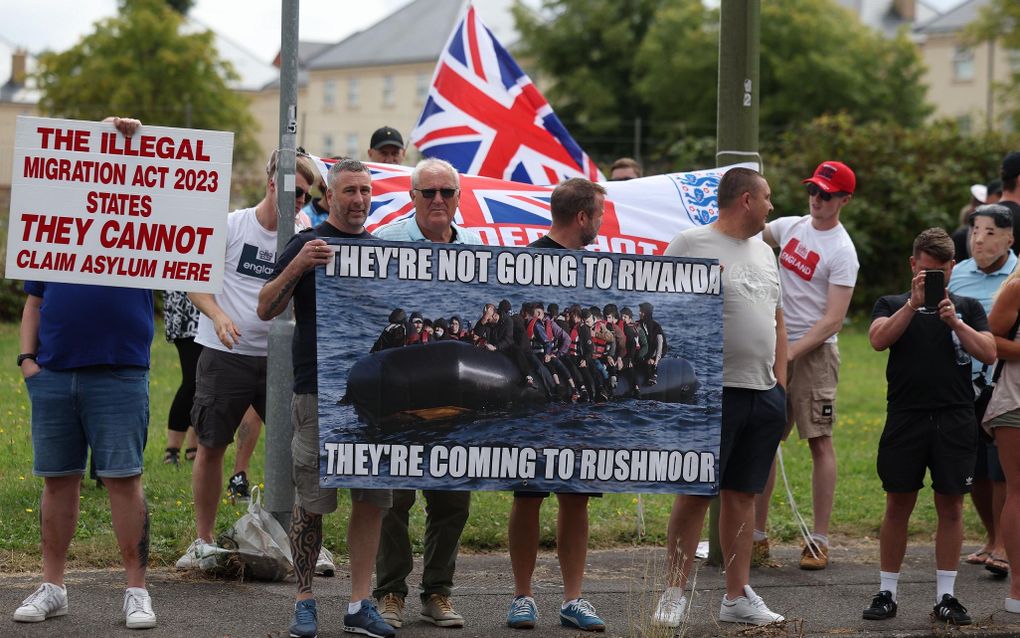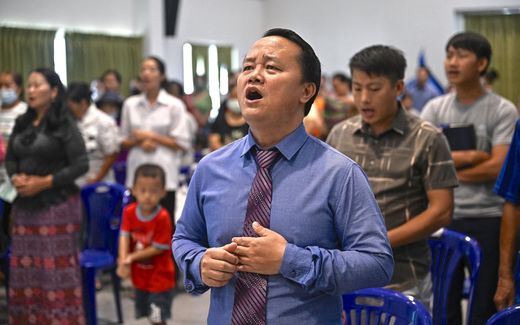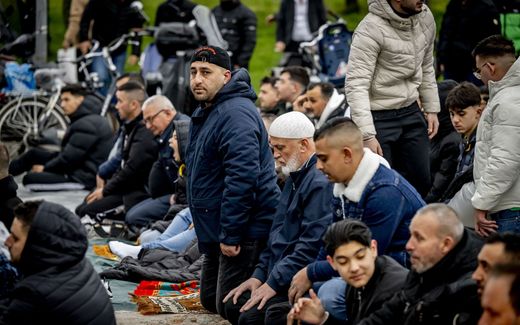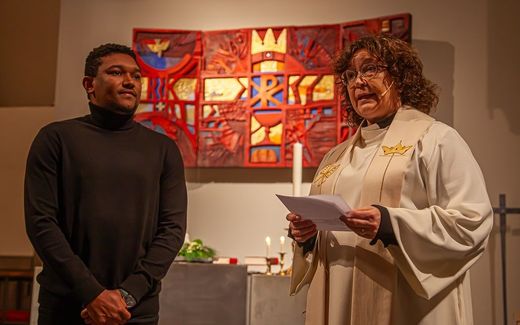Bart-Jan's Comment – Europe, be prepared for racialised riots

Anti-migration demonstrators hold signs during a protest outside the Potters International Hotel which houses migrants in Aldershot, Britain, 04 August 2024. Violent demonstrations by members of far-right groups have sprung up across Britain in the aftermath of a deadly stabbing attack in Southport, in which three children were killed and eight more seriously injured along with two adults. Photo EPA, Neil Hall
Opinion
Misinformation, violence, ongoing riots: the murder of three young girls by a young man with a migration background has stirred a lot of confusion and discussion in England, culminating in fierce accusations towards the extreme right, migrants and Muslims. Christians should not be naive about immigration, but neither should they join the extreme-right rhetoric.
We know, and we have known this for at least twenty years, that the more diverse and multicultural a community is, the less likely it is that its inhabitants trust one another. This fact raises the question of whether the riots in England are a harbinger of things to come in the rest of Europe, where societies are just as multicultural as England's. Many fear that the violent disorder we have witnessed in English cities may come to continental Europe as well. Another equally important question is: What should Christians' attitudes be in this discussion?
For six days in a row, violent confrontations between protesters and the police have taken place in Great Britain. A mosque in Southport has been attacked; in Rotherham, in the heart of England, a mob sieged an asylum centre; in Tamworth (near Birmingham), protesters set on fire a hotel used to accommodate asylum seekers. Muslims are organising their self-defence.
These events followed the shocking incident of last Tuesday in Southport (north of Birmingham) when a young man (Axel Muganwa Rudakubana, 17 years old, the son of migrants from Rwanda) stabbed three young girls (6-9 years old) and wounded several other children and adults. On the internet, it was incorrectly claimed that he was an illegal immigrant and a Muslim. 'Give us back our country', 'Stop the boats', people shouted on the streets. During and after the attacks and riots, 150 people have been arrested.
COVID
Prime minister Keir Starmer vowed that he would do everything to put these 'thugs' on trial and did not hesitate to call them 'extreme-right'. He has even been advised to take strong measures, comparable to the measures taken during the COVID-19 epidemic, to stop the riots.
Others dismiss the riots but want to make it clear that the outbursts of hatred and indignation, although fuelled by misinformation, are the result of decades of liberal and permissive policies. Politicians, not only in England but all across Europe, have allowed mass immigration, they say, creating societies with cultural tensions between different groups. They see the violent disorder in England as proof of the backing of the pressure they themselves created. Southport, in their view, is the straw that broke the camel's back. But the cat has been out of the bag since long. More is on its way. We better be prepared.
Naive
From a Christian perspective, multiculturalism (as an ideology) tends to be regarded as a threat to a society shaped by the Judeo-Christian tradition, especially if this way of thinking and the ensuing policies are the results of moral and cultural relativism or even of a (conscientious or unconscientious) reckoning with a not-too-distant past. An essential part of a Christian view on politics is the importance of sharing essential values for the well-being of society. Sharing values and expectations creates trust, which is one of the foundations of a flourishing society. In this respect, we have to admit that a policy of multiculturalism is naive and even dangerous.
With this in mind, tensions, such as those we see in Britain, could have been predicted, and a continuation of this disorder in continental cities is less than imaginary. But violence, the explicit or implicit acceptance of violence, or looking away from violence, is never a solution. All solutions ultimately are the result of a new awareness of the importance of sharing values, of being tolerant in the classical sense of the word (accepting other views though they may hurt you) and of democratic debate.
Neither can Christians approve of and welcome the extreme-right rhetoric that is voiced in the streets of Britain as proof of brave self-defence. It is not only rude but, more importantly, lacks the charity which should characterise a Christian's behaviour towards his fellow citizens. But hopefully, the incidents and violence will not just lead to the predictable and clichéd accusations of far-right thugs but will serve as a wake-up call to politicians to tread the social fabric of society more carefully.
Related Articles









